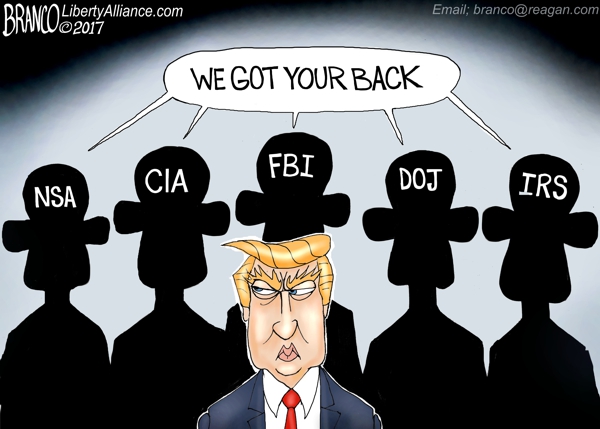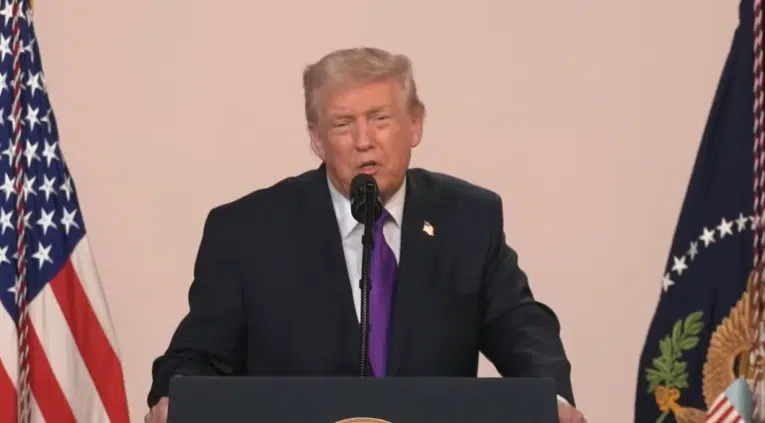Spygate was an act of war. Russia hacked the DNC and John Podesta and had the emails published on Wikileaks. That surely was viewed by the Obama administration as an act of war and it responded in kind. It was called a digital Pearl Harbor.
However, their first response was not to sanction Russia. No, that would not come until Dec. 2016 — after the election.
Before the election, the first response was to obtain surveillance against the Trump campaign and the GOP, first by targeting George Papadopoulos via foreign agency efforts beginning in mid-2016, and then the FISA warrant applications, assuming there weren’t more, on Carter Page beginning in Oct. 2016, fueled by the DNC-Steele dossier falsely accusing President Donald Trump, Page and Paul Manafort of being Russian agents, that was renewed after the election and then finally the fateful strike on Michael Flynn in Jan. 2017, spying on his phone call with the Russian ambassador, leaking it to the Washington Post on Jan. 12, 2017, sending the FBI to ask about it on Jan. 24, 2017 — all encompassing the bedrock of a three-year-long Justice Department investigation, undertaken under the mistaken belief that the nation had just elected the Manchurian Candidate.
Now, Washington, D.C. and the American people patiently await the publication of Justice Department Inspector General Michael Horowitz’ report on abuses of the Foreign Intelligence Surveillance Act in 2016 and beyond, wherein the Trump campaign, the opposition party at the time, was unjustly surveilled by the Obama administration, the incumbent party, in an election year.
The surveillance gave intelligence agencies unprecedented access to the operations of one of the major parties’ presidential campaigns. They had Page’s contacts, including telephone, email, text, documents and more, his contacts’ contacts, at least, throughout the campaign, Trump’s sphere and the Republican National Committee, certainly.
The surveillance carried over into the Trump administration in 2017, and the investigation persisted until 2019, when Special Counsel Robert Mueller finally concluded it, finding in his report that, after all, there was no criminal conspiracy between President Donald Trump or his campaign and Russia to steal emails from the Democratic National Committee (DNC) and John Podesta and have them put on Wikileaks.
The Mueller report stated, “[T]he investigation did not establish that members of the Trump Campaign conspired or coordinated with the Russian government in its election interference activities,” and “the evidence does not establish that the President was involved in an underlying crime related to Russian election interference.”
So, if it was not true, then what made intelligence agencies and the Justice Department come to believe in what amounted to a hare-brained conspiracy theory that tore the country in half for three years?
Intelligence and surveillance powers are war powers. They are designed to identify targets, usually military, for purposes of eliminating threats to national security in the event of war. Their use, therefore, is itself an act of war, including when it is used domestically.
The American people are told that these powers are essential to defending national security. But used wrongly, as they were in spygate, they become themselves the greatest threat to national security and the Constitution.
The fact that it was used politically and in a partisan context, and wrongly at that to identify fictitious threats to national security, does not ameliorate and only compounds concerns about how these powers were used and how they may be used again in the future.
To create accountability when this sort of thing happens, there must be an accounting of how these powers were wrongly deployed in the first place, highlighting the need for oversight by Horowitz, but it must be followed up by action by Attorney General William Barr. Why did the Foreign Intelligence Surveillance Court repeatedly rubber stamp the warrant applications against the Trump campaign that found no conspiracy? Why did judges keep renewing it if it wasn’t true?
What was the extent of the surveillance? Who did it net? Were they in the White House? It seems hard to believe they weren’t.
Moreover, what laws (if any) were violated and who will be held accountable so the American people can have certainty that these powers are not abused again in the future?
The worst possible outcome of the Horowitz report would be if it found that, yes, the FBI and Justice Department were given bad, concocted intelligence by political actors, including the DNC and Hillary Clinton campaign who hired former British spy Christopher Steele to produce the bogus allegations that President Trump was a Russian agent, used in the Foreign Intelligence Surveillance Court to violate their constitutional rights, but that doing so violated no laws.
This dilemma, more than anything, will come to define Barr’s tenure in office as well as determine whether the national rift caused by the abuse of surveillance powers can ever be mended.
This was a blow on democracy itself, an effort to overturn a decisive electoral outcome in 2016. A place the Justice Department and intelligence agencies have little role in interfering. What we did to ourselves pales in comparison to anything Russia was accused of.
The whole reason the Foreign Intelligence Surveillance Act of 1978 was adopted was prevent unconstitutional domestic spying. A select committee headed by Sen. Frank Church (D-Idaho) convened in 1975 to get to the bottom of revelations by Seymour Hersh’s explosive report to the New York Times on Dec. 22, 1974 that the CIA had been engaged a mass, domestic surveillance program against anti-war protestors, members of Congress and other political figures.
On NBC’s Meet the Press on Aug. 17, 1975, Church who had led the committee warned, “If this government ever became a tyranny, if a dictator ever took charge in this country, the technological capacity that the intelligence community has given the government could enable it to impose total tyranny, and there would be no way to fight back because the most careful effort to combine together in resistance to the government, no matter how privately it was done, is within the reach of the government to know. Such is the capability of this technology…”
Church added, “I don’t want to see this country ever go across the bridge. I know the capacity that is there to make tyranny total in America, and we must see to it that this agency and all agencies that possess this technology operate within the law and under proper supervision so that we never cross over that abyss. That is the abyss from which there is no return.”
The committee led to the adoption of the law, which sought to reform how intelligence is gathered and the limited circumstances it can be used in the U.S. If 40 years later, the Justice Department concludes an internal review into the gravest abuses of this law ever seen, where surveillance was used to yield partisan political advantage and even to unseat a sitting president on made-up allegations of treason, that it violated no laws, it will discredit the very rule of law FISA sought to engender.
The real dilemma Attorney General Barr faces is the reality that if the perpetrators of spygate are not held accountable now, and the mass surveillance powers reined in, this will happen again. This was one of the most terrible things that ever happened to our country. How do we put the genie back in the bottle?
Robert Romano is the Vice President of Public Policy at Americans for Limited Government.







